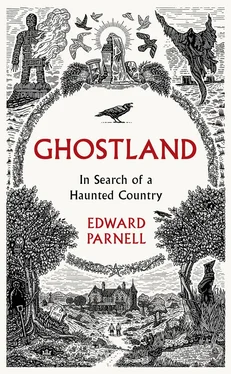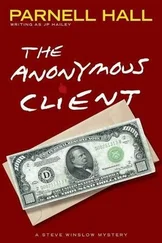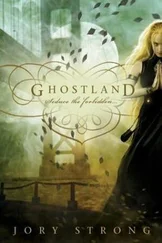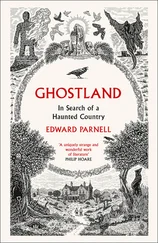‘What was that?’ I ask.
‘These sorts of thing happen here sometimes,’ Diana says, picking up the book and replacing it.¶¶
I’m not someone who claims to have any predisposition to such things, and I have little experience of similar incidents, but the happening is not a frightening one and seems in keeping with the location. I suppose my rational explanation would be that our footfalls caused a vibration that dislodged the already unbalanced book, but even so the force of its flight was unsettling. The cynic in me wonders for a moment whether Diana has an elaborate mechanism to activate such a trick that she uses on all wide-eyed visitors – but I know this isn’t actually the case. Indeed, Lucy Boston comments in her memoir:
Meanwhile the house continued its own mysterious life and from time to time sent feelers out from its darker corners, such as slight poltergeistic displacements, footsteps up the wooden stairs, wandering lights, voices, etc., but so much immediate and dramatic human life filled the place that irrational trifles did not get much attention.
Later, in the music room, we sit as Robert Lloyd Parry, a Cambridge actor and M. R. James devotee with a more than slight resemblance to Monty, reads two of the scholar’s ghostly tales by candlelight to a now-assembled audience.*** I am transfixed by MRJ’s words (and Lloyd Parry’s performance), though a growing sense of weariness seems to have taken hold of me for some reason – the effect of all the Manor’s encroaching history, perhaps? I feel a little like Tolly midway through The Children of Green Knowe , after his great-grandmother reveals to him that the house’s three elusive young visitors are long dead:
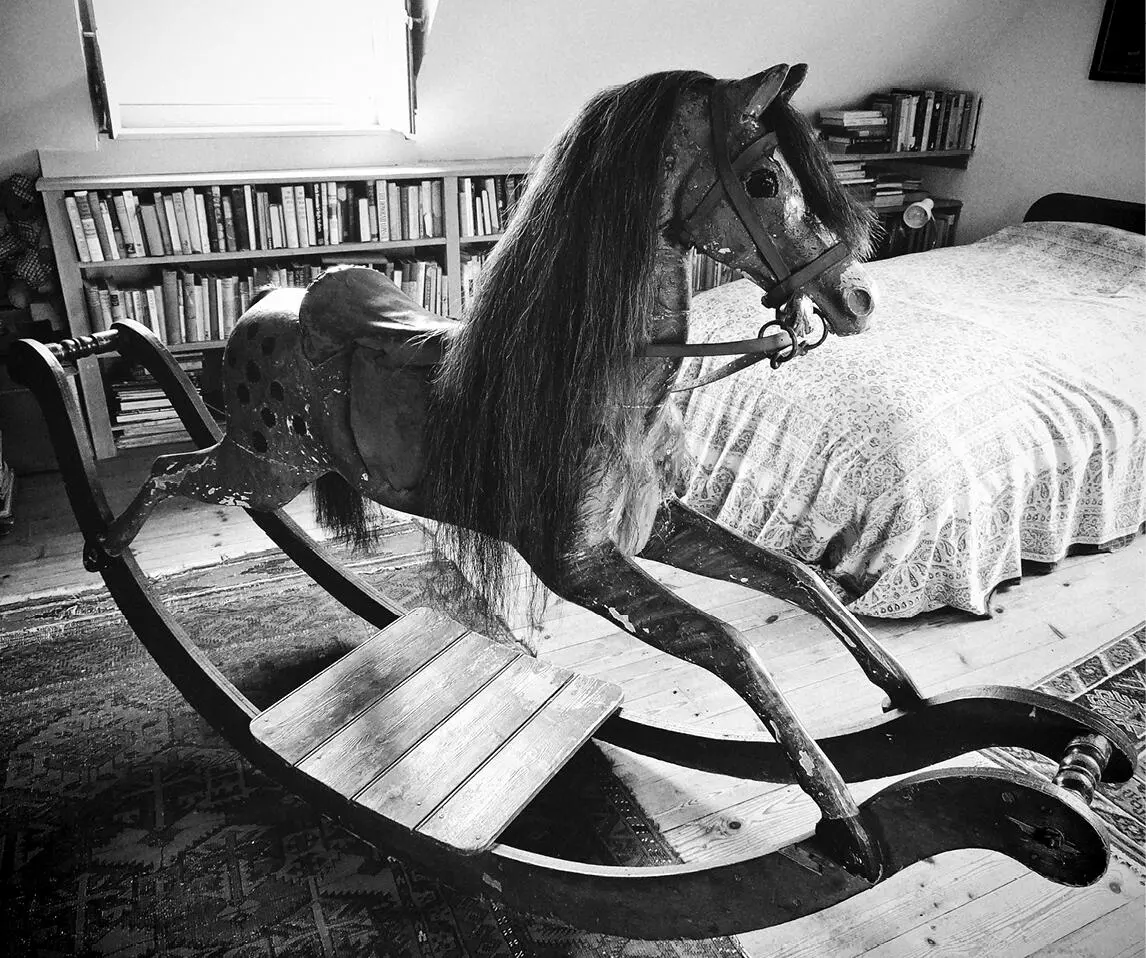
He must have known of course that the children could not have lived so many centuries without growing old, but he had never thought about it. To him they were so real, so near, they were his own family that he needed more than anything on earth. He felt the world had come to an end.
Afterwards, I traverse the monotony of the moon-risen Fens in near silence, not wanting the radio to interrupt the drumming of the rain and the hypnotic drone of my car’s engine. As I pass a stand of willows that lines a deep dyke, a winter moth – the hardiest of our lepidoptera – flutters skywards, luminous in my headlights.
Another lost heart.
*There are, perhaps, wider sociological factors as to why grand houses and their surroundings feature so prevalently in the stories of James (and other writers) – historically, ghosts have seemed largely a concern of the two extremes of British society, with belief in them concentrated among the upper and working classes. Roger Clarke’s A Natural History of Ghosts makes a neat case for these polarities: ‘Your middle-class sceptic would say that toffs like ghosts because it is a symptom of their decadence, the plebeians because they are ill-educated.’
†Written in 1935 and printed posthumously in 1936, ‘A Vignette’ is the only one of James’s works to reference Livermere and his childhood home directly. The apparently autobiographical tale tells of a malevolent, haunting face glimpsed through an opening in the rectory’s wall.
‡It’s tempting to think the room inspired ‘The Tractate Middoth’. But the primary setting of James’s story (published in 1911) is Cambridge University’s old library – today the library of Gonville & Caius.
§That same month McBryde’s wife Gwendolen gave birth to a daughter, Jane, with James taking up the role of her guardian; he wrote his sole children’s book, the Narnia-esque The Five Jars for her, and remained in close contact with the pair for the rest of his life.
¶It must be remembered that the Labouchere Amendment of 1885 had added a new layer of homophobic persecution to British society, criminalising ‘gross indecency’ between men, as Oscar Wilde would discover to his cost; it was not until 1967 that these laws were partially repealed, and only in 2004 (in England and Wales) that they were fully abolished.
**In his 1929 essay ‘Some Remarks on Ghost Stories’ James comments: ‘Reticence conduces to effect, blatancy ruins it, and there is much blatancy in a lot of recent stories.’
††Although he spent so many of his seventy-three years on the fringe of the Fens, James’s stories, with the exception of the ‘The Fenstanton Witch’ (which was unpublished in his lifetime), are not explicitly set in this flat farmland world. For an excellent example of a truly Fens-located tale, R. H. Malden’s ‘Between Sunset and Moonrise’ is difficult to top. Malden was a fellow Kingsman and an acquaintance of James; his single collection of supernatural stories, Nine Ghosts , was brought out by MRJ’s publisher Edward Arnold during the Second World War. Its dustjacket made the grand claim: ‘Dr James has found his successor.’
‡‡Except in the fifth of the series, An Enemy at Green Knowe , which gives us the malingering trace of Dr Vogel, an ominous seventeenth-century alchemist not unlike Mr Abney from ‘Lost Hearts’.
§§The adaptation of The Children of Green Knowe wasn’t actually shot at Hemingford Grey Manor, but at the moated Crow’s Hall, near Debenham in Suffolk. Although the production team borrowed Hemingford’s rocking horse, they ended up using a near-identical one with a blonde, not dark, mane.
¶¶When I later examine the solid-feeling shelves, I find they contain first editions of Alan Garner’s Red Shift and The Owl Service – two more important books from my childhood in which the past parallels the present. Neither, however, was the volume that flew out into the room; its identity must remain a mystery, as in the excitement I forgot to check.
***Lloyd Parry provides the introduction to Lucy Boston’s posthumously published collection of stories written in the 1930s, Curfew & Other Eerie Tales ; the title piece is particularly effective, along with the menacing water tower of ‘Pollution’.
Chapter 2
Something of a dread feeling starts to rise inside me as I cross the Great Ouse, a mud-edged monument to river engineering that in 1981 became home for a few days to a disorientated immature walrus that was eventually repatriated by air to Greenland. At the roundabout a few hundred yards past the bridge, close to where King’s Lynn’s now-demolished sugar beet and Campbell’s Soup factories once formed distinctive waymarkers, I turn my car onto the A17. I’m slipping back in time, back to my childhood, though time itself has seemed to slow as the traffic is moving at a slug’s pace, the line of cars in front of me having their progress curtailed by an inevitable tractor. Elsewhere, such hold-ups at least allow drivers space to appreciate their surroundings, but here, on a soot-grey day, there’s little to savour, just endless brown fields that merge into the horizon, broken up by occasional mean stands of poplars or ugly, asbestos-roofed agricultural buildings.
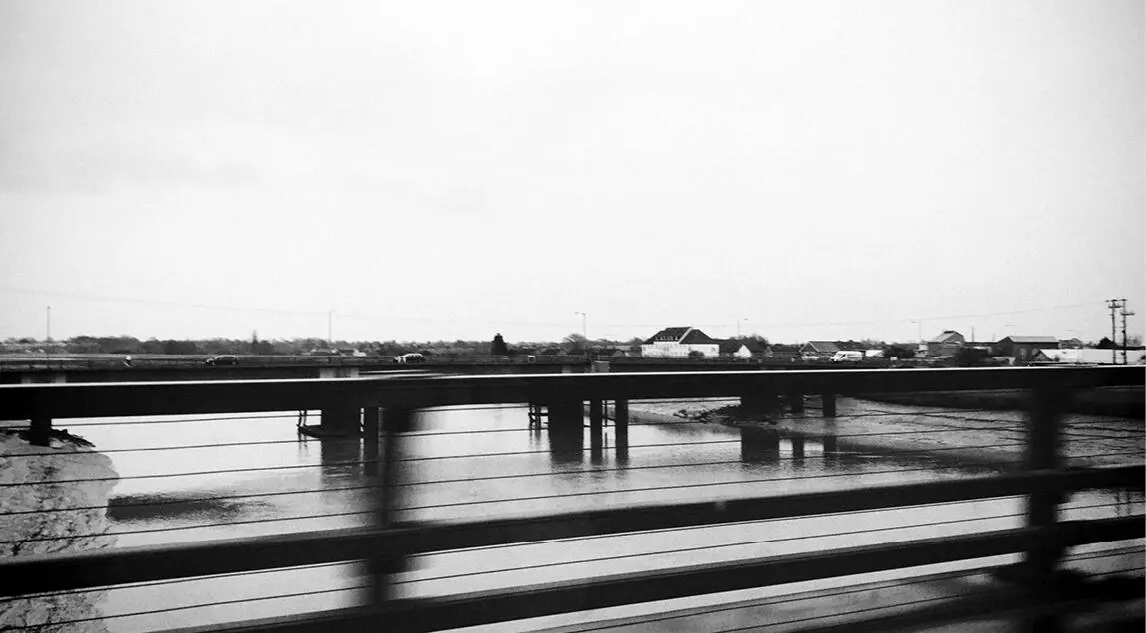
It’s an artificial, man-made landscape, reclaimed in part from the sea. We learnt about it at school, about Cornelius Vermuyden and the Dutch-led drainage of the seventeenth century, and of the earlier history of this ague-ridden backwater: the watery world where in 1216 King John is said to have lost his royal treasure on an ill-fated crossing of one of the estuaries of the Wash, having a few days before in King’s Lynn contracted the dysentery that would shortly kill him; or of the Anglo-Saxon rebel Hereward the Wake who led Fenland resistance to the newly arrived Normans, but was more familiar through having lent his name to the Peterborough-based radio station my classmates and I would listen to – in particular hoping they’d read out the name of our school on a snowbound day and that it wouldn’t be opening, a rare mythic event that actually came to pass on two occasions. Mostly though, the story of the area’s past is vague in my mind, like the inconstant lie of the land in the days prior to pumping stations. Even my own connections with the region seem increasingly tenuous, liable to be leached away by one of the local rivers: the Great Ouse, the Nene, the Welland. Or the River Glen, which my grandfather – a real-life incarnation of a character from Graham Swift’s Waterland – lived alongside.
Читать дальше
